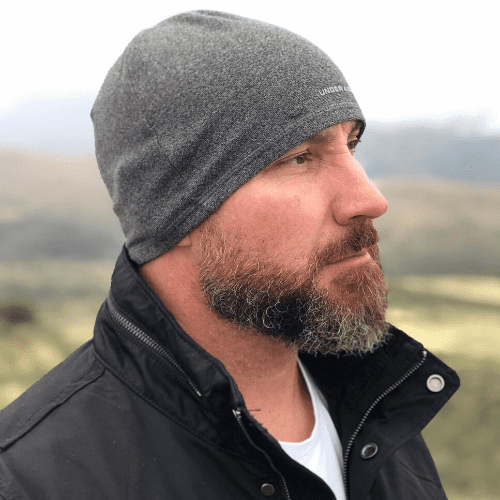Accepting Powerlessness in Addiction
From the moment we begin to form our identities, we’re taught that power comes from being self-sufficient. But what happens when we face addiction? In this resource, we explore the power behind accepting powerlessness.Searching for help with drug and/or alcohol addiction? Call us now at (800) 643-2108.
Powerlessness and Self-sufficiency in Modern Culture
Modern American culture promotes staunch individualism in professional and personal settings, from the glory we assign to self-starters and ‘self-made’ success stories to how contemporary television programming has molded the dysfunctional loner archetype into a heroic role.
Think of the characters of House M.D., Rick Sanchez, Walter White, Don Draper, Jack Sparrow, and Tyler Durden, for example.
Generations of young men grow up and see the strength and enviable confidence in “heroes” who live by their own rules and often either brush off or outright reject the support of the people in their lives.
It’s no coincidence that the old trope “men refuse to ask for directions” is widespread. All your life, the world around you has portrayed a strong man as a man who doesn’t take help from anyone.
To fit into this short piece all the reasons why this idea is baseless, dangerous, and flat-out wrong would be like trying to squeeze every dictionary definition for “toxic masculinity” into a 280-character tweet. Still, we can at least cover the most important takeaways.
It’s Not All In The Mind
You’ve probably heard the famous First Step of AA’s 12-Step program: “The first step is admitting you have a problem.” The step doesn’t just call you to admit it to yourself. Within the confines of our inner monologue, we are capable of compartmentalizing and rationalizing our behavior.
Even if you think your life is crashing down around you, as long as you’re keeping it to yourself, you will continue to find ways to go about your day-to-day without making changes.
The power of admitting that you have a problem becomes yours once you open it up into your world. By sharing with someone you trust–family, a close friend, or a recovery professional–, you make the problem and your need to address it more than just a thought in your mind.
No amount of thought or reflection will solve the dangerous problem of your struggle with addiction. You’ll take the first tangible step towards overcoming this burden by pushing yourself to take action.
Recovery Begins When We Stop Fighting the Need to Feel in Control
Control is a sensitive psychological hotspot for most people. To admit that we’ve lost control in even one area of our lives can be a terrifying experience.
Countless people battle to retain the feeling of being in control over their lives. For some, this battle may be the very thing that leads them to abuse drugs or alcohol.
For others, the fear of admitting powerlessness keeps them from seeking help for their addiction. As long as you act like you’re in control, the fear of helplessness, of being unable to break free, won’t dominate your mind.
Unfortunately, these are temporary measures that will only prolong your ultimate suffering. Deep in your heart, you may already be able to recognize that your fear of admitting powerlessness has kept you from making the difficult but necessary changes. You will eventually need to address the changes to your lifestyle in one way or another.
There aren’t many positive ways that the path of addiction ends unless you make changes. If you want the best for yourself, you will take immediate action to get help. Stop letting your fear and pride get the best of the rest of your life.
Being Scared of Change is Okay
Accepting powerlessness means facing your fear. It will be terrifying. It may even shake the foundations of your life as you know it. You may feel forced to ask yourself hard questions about what this means for your identity and your future.
For now, hold to the course and accept that this step is what will push you over the edge to seek real help.
Start by choosing someone you trust and telling them you need to talk to them about an issue you’re having. Accept that you’ve lost control and you’re scared of what may happen if you don’t get help.
Saying these things aloud makes them real, not just to you but to the rest of the world around you. As tempting as it may be, do not downplay your problem. Take a frank look at your life and communicate it honestly.
Once you are taking this action towards getting help, you mustn’t pull any punches. Most of all, don’t be ashamed of where you are.
This moment is time is one page in the book of your life, and by addressing it honestly, you are working to ensure yourself many, many more pages to come. Finish off the story of your life strong.
Accepting Powerlessness and Reaching Out for Help
Opening up and accepting that you’ve lost power in your struggle with addiction can be painful.
At Cornerstone Healing Center in Scottsdale, Arizona, we know that transitioning from covering up and justifying your habits to addressing them out in the open can mean a full-on reassessment of your life.
The professional guidance we provide can make all the difference in those crucial moments during the brunt of your recovery and for the important first year after achieving sobriety.
We work with you every step, from helping you past those initial mental roadblocks to building the long-term life you want to live, free of drugs or alcohol.
Using evidence-based practices and a holistic approach that enriches your body, mind, and social support system, we’ve helped twice as many people finish treatment at Cornerstone as the national average.
Get sober and stay sober—Call 800-643-2108 to talk with a recovery professional today.







